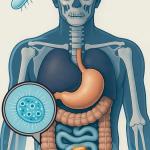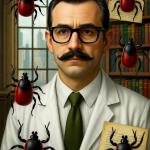Join Cameron English and Dr. Chuck Dinerstein on Episode 145 of the Science Dispatch podcast as they discuss the non-benefits of apple cider vinegar.
Podcasts
Join Cameron English and Dr. Chuck Dinerstein on Episode 144 of the Science Dispatch podcast as they discuss a groundbreaking treatment for macular degeneration:
Join Cameron English and Dr. Chuck Dinerstein on Episode 143 of the Science Dispatch podcast as they discuss the chaotic climate in the human gut:
Join Cameron English and Dr. Chuck Dinerstein on Episode 142 of the Science Dispatch podcast as they discuss the fiber wars:
Join Cameron English and Dr. Chuck Dinerstein on Episode 141 of the Science Dispatch podcast as they discuss Brazil outbreak of alcohol poisoning:
Join Cameron English and Dr. Chuck Dinerstein on Episode 140 of the Science Dispatch podcast as they discuss a wildly unethical "thought experiment."
Join Cameron English and Dr. Chuck Dinerstein on Episode 139 of the Science Dispatch podcast as they discuss a wildly unethical "thought experiment."
Join Cameron English and Dr. Chuck Dinerstein on Episode 138 of the Science Dispatch podcast as they discuss the risks of rapid technological evolution.
Join Cameron English and Dr. Chuck Dinerstein on Episode 136 of the Science Dispatch podcast as they tackle the ethics of drug advertising.











